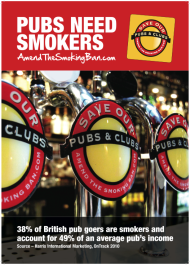I developed my political "wings" in the late Seventies. Politics, I discovered, is not about being 'nice'. It's about ideas, and debating those ideas and arguing very strongly for the ideas you believe in, even if that makes you unpopular with a large number of people.
Unfortunately, there hasn't been a great deal of debate in the run-up to tomorrow's general election. Oh, we've had three "leadership debates" on TV, but there were so many rules governing their conduct that all we got were a few petulant asides (from Brown and Clegg) and a handful of soundbites, notably "I agree with Nick".
Today, on The Free Society website, Professor Dennis Hayes asks why, in an election without any discernible debate, none of the political contenders came out as the ‘therapy party':
Watching his “a plague on both your houses” performance, Clegg tapped in to the anti-political mood and the anti-politics of our time in a way that reminded me of the ‘Not in my name’ anti-politics of the ‘Stop the War’ movement. No old-fashioned anti-imperialism, just an emotional desire not to get mixed up in big power politics. ‘I want to stop the war … I’m a nice person, and nice people don’t do war!’ Likewise, Nick was too nice to get embroiled in this conflict and was unconsciously adopting a therapist’s approach. He was concerned but not involved ...
Today’s politicians are ‘nice’ and I choose the word carefully. They are not particularly moral or noble and are primarily preoccupied with themselves. What they want to avoid above all else is conflict or contestation. Attempting and often failing to be ‘nice’ they know that this is all that matters and being clear about anything would lose votes. When Brown’s advisors wrote the line about Cameron and Clegg being “squabbling children” it sent out the message that they had understood that wherever possible debate was to be avoided. It was squabbling; not a nice thing at all ...
Without a hint of irony Brown declared on the day after the final debate: “The time for debate has passed.” But there had been no debate, and hardly any discussion about how to deal with real issues such as the UK’s huge financial debt. That ‘debate’, like many others, will never happen. It wouldn’t be nice to discuss nasty cuts and restructuring. This attempt to be nice to us, the voters, is the therapist’s approach. It assumes that we are too vulnerable to face up to these issues and so it’s best for politician’s not to raise them ...
Being nice is now part of the political world in which our betters, the therapists, treat us as their clients who need their care. ‘Bigotgate’ showed that this care is caring contempt. But mostly this is masked because politicians daren’t show their contempt. That would not be nice. The only way to expose their real views would be to force them to debate by expressing our views in a way that wasn’t nice. It was too hard for most people. It was too difficult to overcome the general malaise of ‘niceness’ that is an expression of our therapeutic culture. Too much like the old class war than the modern ‘couch war’.
Full article HERE.
PS. In last week's third and final debate the prime minister said, quite distinctly, "I agree with David". (I think they were talking about immigration.) Curiously, I don't remember anyone saying "I agree with Gordon." Perhaps I fell asleep.
 Thursday, May 6, 2010
Thursday, May 6, 2010  Simon Clark
Simon Clark
 Simon Clark
Simon Clark










